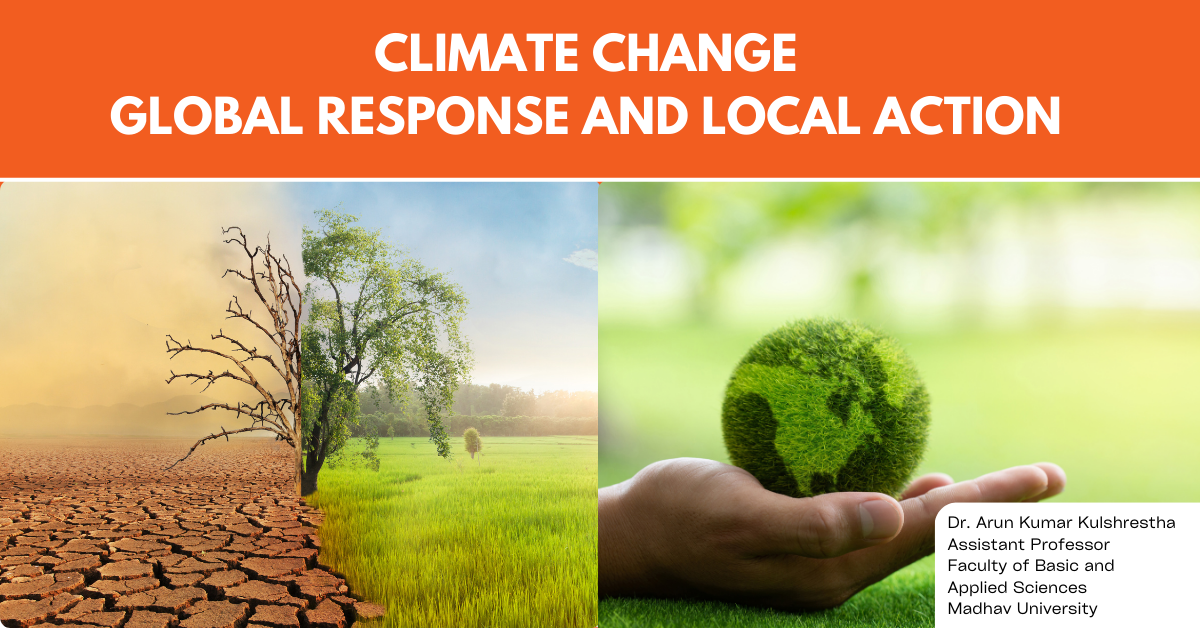Climate change is no longer a distant threat; it is a contemporary reality that impacts all parts of our world. As we face rising temperatures, extreme weather events, and altered ecosystems, it is evident that both global and local responses are required to manage this complex challenge.
Global Response: Coordinated Efforts and Policy Frameworks
Nations around the world have realized the seriousness of climate change, and international collaboration has emerged as a key component of the response. The Paris Agreement, ratified in 2015, is a major commitment in which almost 200 countries vowed to restrict global warming to far below 2°C above pre-industrial levels, with a goal of 1.5°C if possible.
This concerted effort shows a general understanding that climate change is a global issue that necessitates a coordinated response.
Beyond agreements, global organizations such as the United Nations Framework Convention on Climate Change (UNFCCC) and the Intergovernmental Panel on Climate Change (IPCC) play critical roles in tracking progress, establishing scientific benchmarks, and directing policy. The IPCC’s publications provide crucial insights into the state of climate research, whereas the UNFCCC supports discussions and monitors country commitments.
In recent years, there has been a greater emphasis on incorporating climate action into larger economic and social contexts. The notion of “climate finance” seeks to assist developing countries in their climate efforts through cash and technology transfer, while acknowledging that vulnerability to climate impacts is not fairly distributed.
Local Actions: Grassroots Innovation and Community Resilience
While global guidelines lay the groundwork, it is frequently local initiatives that produce actual, measurable change. Communities all across the world are inventing and adapting in response to the unique climatic problems that they confront.
- Urban initiatives: Cities are becoming focal points for climate action. Initiatives such as urban green areas, energy-efficient buildings, and sustainable public transportation are being implemented to minimize carbon footprints and increase resilience. Cities such as Copenhagen and Portland are pioneering carbon neutrality and sustainable urban design initiatives.
- Local Agriculture: Farmers in rural areas are developing sustainable strategies to adapt to shifting weather patterns. Crop diversification, agroforestry, and water conservation are all strategies for maintaining productivity while lowering environmental effect.
Local food movements and community-supported agriculture are gaining popularity, cutting food miles and boosting local economies.
- Community-Based Adaptation: Local adaptation measures are critical for interior communities creating early warning systems for extreme weather as well as coastal towns strengthening sea fortifications. Grassroots organizations are frequently in the vanguard, working to strengthen communities via education, advocacy, and practical solutions customized to local needs.
- Grassroots campaigns: Citizen-led campaigns, such as Fridays for Future and local climate action groups, are using the potential of collaboration. These organizations campaign for policy changes, increase awareness, and mobilize communities to act. Their grassroots nature ensures that people most affected by environmental changes provide input on climate action.
Bridging Global and Local
The coordination of global and local activities is critical for effective climate response. While international accords establish lofty goals, local initiatives provide the on-the-ground answers required to meet these aims. In contrast, local accomplishments can educate and inspire global initiatives, resulting in a dynamic feedback loop that improves the overall reaction.
Local renewable energy initiatives, for example, can help to meet national clean energy targets, while innovative local policies can be used as models in other regions. Collaboration among local governments, corporations, and international organizations can boost the effectiveness of both global pledges and local projects.
Moving Forward: A Call to Action.
As we traverse the complexity of climate change, it becomes evident that both global frameworks and local efforts are critical. Governments, organizations, and individuals all play important roles in this worldwide effort. We can create a more sustainable and resilient future by encouraging collaboration, sharing knowledge, and supporting large-scale policies as well as community-driven initiatives. Every action matters, whether it is pushing for policy changes, implementing sustainable behaviors, or supporting local climate efforts. The fight against climate change is far from over, and we will carve a road ahead only through our collaborative and concerted efforts.
Dr. Arun Kumar Kulshrestha
Assistant Professor
Faculty of Basic and Applied Sciences
Madhav University

